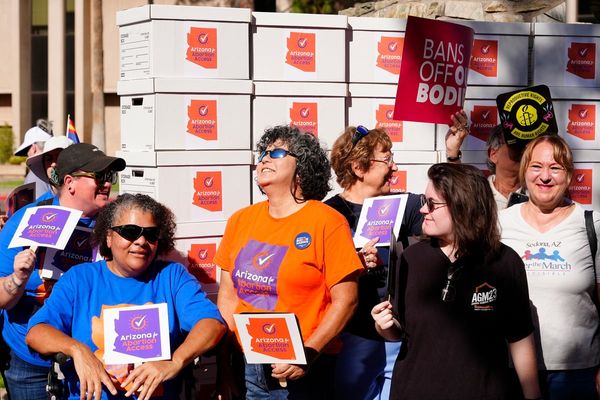
Caroline Lucas’s call to a cross-party group of 10 top female politicians to unite and block a no-deal Brexit may seem a tricky political challenge to bring about, but if it did come to pass, who might serve where in the temporary Lucas cabinet?
At 11pm UK time on 31 October the UK would, by default, become a “third country” in terms of relations with the EU, with no post-Brexit plan in place, and no transition period. The UK would no longer be paying into the EU budget, nor would it hand over the £39bn divorce payment.
The UK would drop out of countless arrangements, pacts and treaties, covering everything from tariffs to the movement of people, foodstuffs, other goods and data, to numerous specific deals on things such as aviation, and policing and security. Without an overall withdrawal agreement each element would need to be agreed. In the immediate aftermath, without a deal the UK would trade with the EU on the default terms of the World Trade Organization (WTO), including tariffs on agricultural goods.
The UK government has already indicated that it will set low or no tariffs on goods coming into the country. This would lower the price of imports – making it harder for British manufacturers to compete with foreign goods. If the UK sets the tariffs to zero on goods coming in from the EU, under WTO ‘most favoured nation’ rules it must also offer the same zero tariffs to other countries.
WTO rules only cover goods – they do not apply to financial services, a significant part of the UK’s economy. Trading under WTO rules will also require border checks, which could cause delays at ports, and a severe challenge to the peace process in Ireland without alternative arrangements in place to avoid a hard border.
Some no-deal supporters have claimed that the UK can use article 24 of the General Agreement on Tariffs and Trade (Gatt) to force the EU to accept a period of up to ten years where there are no tariffs while a free trade agreement (FTA) is negotiated. However, the UK cannot invoke article 24 unilaterally – the EU would have to agree to it. In previous cases where the article has been used, the two sides had a deal in place, and it has never been used to replicate something of the scale and complexity of the EU and the UK’s trading relationship.
The director general of the WTO, Roberto Azevêdo, has told Prospect magazine that "in simple factual terms in this scenario, you could expect to see the application of tariffs between the UK and EU where currently there are none".
Until some agreements are in place, a no-deal scenario will place extra overheads on UK businesses – eg the current government advice is that all drivers, including lorries and commercial vehicles, will require extra documentation to be able to drive in Europe after 31 October if there is no deal. Those arguing for a ‘managed’ no deal envisage that a range of smaller, sector-by-sector, bilateral agreements could be quickly put into place as mutual self-interest between the UK and EU to avoid introducing or to rapidly remove this kind of bureaucracy.
Caroline Lucas – prime minister
While her letter does not make this explicit, it does make it clear the Green party MP is leading the effort, and would head the brief administration. Though she leads a parliamentary group of precisely one, Lucas is a respected figure in Westminster, albeit one who advocates relatively radical policies.
Jo Swinson – deputy PM

The Liberal Democrat leader would require a very senior post in return for providing her party’s 13 MPs. This could spark flashbacks of Nick Clegg’s tricky time in the role under David Cameron.
Emily Thornberry – foreign secretary

Thornberry holds the shadow post and would thus be an obvious choice. However, the fact Labour has ruled out any alternative government not led by Jeremy Corbyn makes her participation – and the general plan – appear fairly unlikely.
Yvette Cooper – home secretary
A former shadow home secretary, Cooper now chairs the home affairs committee and so knows the brief inside out. She is not an explicit supporter of a second referendum, which could be something of an issue.
Justine Greening – chancellor
Education would seem a better fit, given she has done the job and is passionate about social mobility. But as the only Conservative MP in the mix, she would need a senior job, and has been a junior Treasury minister before.
Anna Soubry – defence
A good fit for someone who spent two years as a junior defence minister under Cameron. The former Conservative heads the five-strong Independent Group for Change, or Change UK as it was.
Heidi Allen – work and pensions

Another former Tory, who now sits as an independent after splitting from Change UK, Allen is a leading member of the work and pensions committee and takes a close interest in the area.
Nicola Sturgeon and Kirsty Blackman (SNP), Liz Saville Roberts (Plaid Cymru) and Sylvia Hermon (independent unionist)

This is where things get a bit tricky, not least as Sturgeon, the SNP leader, is not a member of the Westminster parliament. Handing out jobs to people representing seats in Scotland, Wales and Northern Ireland can bring issues given so much of their domestic policy is devolved. And as separatists, neither the SNP representatives nor Saville Roberts may be best placed to take the Scottish or Welsh cabinet portfolios.







